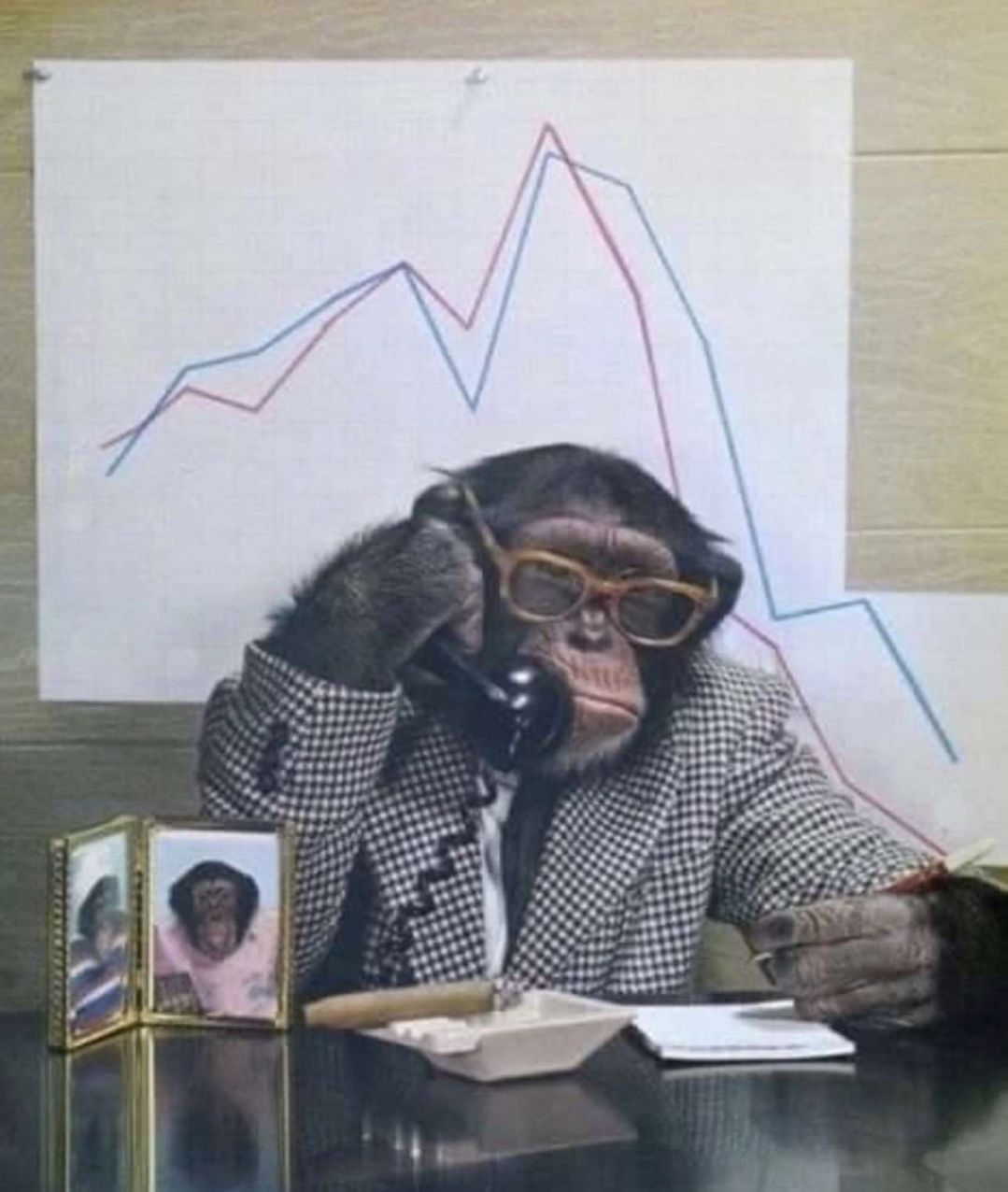The Great Filter is the idea that, in the development of life from the earliest stages of abiogenesis to reaching the highest levels of development on the Kardashev scale, there is a barrier to development that makes detectable extraterrestrial life exceedingly rare. The Great Filter is one possible resolution of the Fermi paradox.
https://en.wikipedia.org/wiki/Great_Filter
The Fermi paradox is the discrepancy between the lack of conclusive evidence of advanced extraterrestrial life and the apparently high likelihood of its existence. As a 2015 article put it, “If life is so easy, someone from somewhere must have come calling by now.”
https://en.wikipedia.org/wiki/Fermi_paradox
Personally I think it’s photosynthesis. Life itself developed and spread but photosynthesis started an inevitable chain of ever-greater and more-efficient life. I think a random chain of mutations that turns carbon-based proto-life into something that can harvest light energy is wildly unlikely, even after the wildly unlikely event of life beginning in the first place.
I have no data to back that up, just a guess.
We have had Millions of years of (presumably) intelligent Dinosaurs on this planet, but only 200.000 years of mankind were enough to create Civilization IV, the best Strategy game and peak of life as we know it.
So clearly, Civilization™ is what sets us apart.
Jokes aside, the thing evolution on earth spend the most time on is getting from single celled life-forms to multicellular life (~2 billion years). If what earth life found difficult is difficult for all, multicellular collaboration is way harder than photosynthesis, which evolved roughly half a billion years after life formed.
Sort of fallacious to go from one case of time to happen and derive probability from it.
I’m no biologist but I don’t think any of our models of super early stuff are sophisticated enough to speculate on what stages are the most or least likely.
You are correct, but that doesn’t mean I can’t speculate about it.
The ability to do photosynthesis is widely distributed throughout the bacterial domain in six different phyla, with no apparent pattern of evolution., according to this random paper I found on the internet (I’m not a biologist either).
What I can glance is that photosynthesis has (probably) evolved independently 6 time in Bacteria and 3 times in Eukaryotes.
Plants evolved to photosynthesise after photosynthesising bacteria already existed for billions of years.
(But then we have to also acknowledge that multicellular life evolved like 25 times in Eukaryotes, and the Eukaryote - aka Mitochondria-“Powerhouse of the cell”-haver- is the real big step as it only happened once to our knowledge).
The way the news has been going I wouldn’t be surprised if plastic is a candidate. After a little less than a century of rapid development in petrol-plastics we’re starting to figure out the long term effects. But the next 1000 generations may be dealing with the fallout.
Petroleum may be both an accelerator and a filter. Filter in the form of plastic, like you’re saying, but maybe it’s weird that crude oil even exists in the first place. An era where plants die, but don’t decompose may be a rarity in itself. Then the geologic activity that buried that dead plant matter, but not too deeply for us to get to, seems like it could also be a rarity. So then we get this energy source that’s pretty energy dense and allows massive technical acceleration, but then poisons us and salts the earth behind us. Look how shortly we went from the first fixed wing flight to rocketing to the moon, amazing how short that time was. Hydrocarbons, allowing us to touch the greatness we could achieve, before smacking us back down.
Pushing Ice by Alastair Reynolds is one of my favorite scifi books and it deals with this question in an interesting way. It proposes that Time is the great filter. Life exists in this galaxy, but intelligent life is so fleeting when considering galactic distances that the probability of one sentient lifeform finding another during their “peaks” is vanishingly small. Extinction, societal collapse, evolution to a higher form, whatever you want to imagine, it all gets in the way of the fantasy of meeting a thinking being from another planet.
There’s been at least 5 mass extinction events we are aware of where I think over 80% of all species become extinct. I’d probably guess one or more of those could do the trick.
Personally? Nationalism & nation states. The longer they stay around, the more likely everyone is to think they’re more deserving of X, and pull the literal and metaphorical trigger that leads to hitting the filter.
I recognize that individuality is very much our thing, but that will literally only take you so far.
One dope-ass 2 pole analogue ladder filter
My guess would be self-replicating biological organisms capable of significant rates of mutation.
But then my preferred solution to the paradox as a whole is basically the “nobody tries” idea.
I don’t think there’s tremendous reason to try to make ones-self detectable at long distances. It’s an expenditure of non-trivial resources for an uncertain result. Since there isn’t really any robustly sound logic for making the attempt outside of dramatized sci fi stories, I imagine a vanishingly small percentage of occurrences of intelligent life would make a serious, high-powered attempt at any point.
I don’t really subscribe to the theory, but I think the idea that alien races are all like “go to SPACE? Why the fuck would we do that?? It sucks up there!” is definitely the funniest solution to the Fermi paradox.
I personally find the kardashev scale a pretty terrible way to measure the success of a civilization. Maybe the most successful life forms don’t become technologically obsessed materialists determined to colonize everything habitable and drain the resources of everything else, yknow?
I mean then how did they become a life form
I wasn’t clear enough I don’t think when I wrote that. I meant that as in the most successful intelligent life forms don’t separate themselves from their ecosystems nor disrupt it in the way we do.
I’m starting to wonder if its LLMs. An AGI is something we would be incredibly cautious around and is really no more likely to be psychopathic than any other living thing, the vast majority of which are not. LLMs on the other hand are pushed into every role techbros can shove them into while having less understanding of what they do than a housefly, the potential for damage is immense if someone decides to put one in charge of something important like infastructure or weaponry.
Maybe it’s wisdom.
Every species that might have grown advanced enough, would have gotten over the point of fighting themselves. So they would be wise enough to have something like the Prime Directive in Star Trek (not interfering with less advanced species’ until they reach a certain milestone).
Capitalism I can imagine how capitalism could be inevitable. I can’t imagine enough controls on it to make it sustainable
I think it would be nuclear warfare. Nuclear fission is a universal development for any advanced civilization. It would be easy to construct a nuclear bomb in an advanced civilization. Once a few rogue/pariah states start making them, everyone’s screwed.
Making nukes is easy, the only reason we don’t see more nuclear states on earth is because of the international backlash. With a couple more Iran and North Korea’s we’ll likely meet the filter ourselves.
It’s very very obviously the speed of light.
I think it’s incompetence.
Fermi, to aliens: “git gud”
Howabout a reasonably advanced civilization destroying itself and its homeworld after exploiting and then running out of petroleum?
I think it’s a fair thought that any form of life doesn’t perfectly recycle their resources and all forms of life give off waste for other life to utilize. That said, a reasonably advanced civilization might just inevitably grow to the size where the waste they put off makes their planet unlivable for them before they can take action to control it.
For us, it’s carbon dioxide.
Don’t forget plastics and pesticides! Those get everywhere, and many are bioavailable by design.
Oil has a bad reputation but how lucky we are to have it. How does a civilization on a planet without hydrocarbons make the leap to a technological species?
It’s not impossible, but it’s got to be a lot harder.
Kelp farms? Domesticated bamboo? We need large areas of land to grow food anyway, we just skipped the charcoal agriculture step. Lathes and the three plate method are the real heroes of industry any way.
A slower ascension into the computing age could mean a more stable set of cultures and a more uniform global situation to avoid anthropogenic filters. Bright candles and all that.










